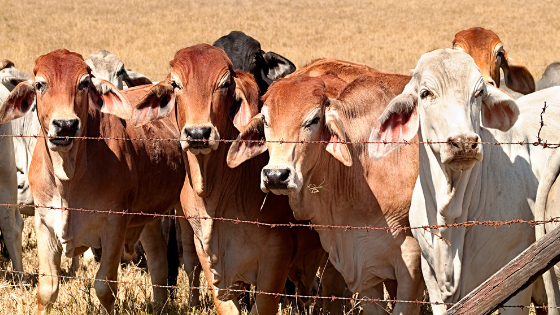For Immediate Release
June 6, 2019
Media Contact: Bill Bullard, R-CALF USA CEO
[email protected], (406) 252-2516
Billings, Mont. – According to R-CALF USA, the proposed implementation of a five percent tariff on Mexican imports will benefit U.S. cattle producers. Last year, the R-CALF USA board of directors unanimously called upon President Trump to impose new tariffs on cattle, beef, sheep, and lamb imported from countries that maintain substantial trade surpluses with the United States.Media Contact: Bill Bullard, R-CALF USA CEO
The group said that underpriced imports were displacing domestic cattle and sheep production and tariffs were needed to offset the artificial price advantage that foreign countries gain through currency manipulation, cutting food safety corners, hidden subsidies, and lax environmental standards.
Last year, Mexico exported nearly 1.3 million cattle to the United States, which was the largest volume of exports in 14 years. Export volumes to the United States in 2019 are on track to be even higher, as they were 22 percent higher during the first four months of this year compared to last.
According to the U.S. Department of Agriculture, Mexican feeder cattle weighing about 550 lbs. in June are priced at about $131 per hundredweight. Comparable U.S. cattle of the same weight are bringing $152 per hundredweight in Oklahoma City and $170 per hundredweight in other areas of the United States.
“This means those Mexican feeder cattle are imported into the United States at a price that is up to $214 per head cheaper than they can be produced by U.S. cattle producers,” said R-CALF USA CEO Bill Bullard.
Bullard added, “This is why the U.S. continues to lose cattle farms and ranches at an alarming rate – we are allowing cheaper imports to displace our domestic production, and this eliminates opportunities for U.S. cattle producers to remain profitable as well as opportunities for aspiring cattle producers to enter the cattle industry.
The group said that underpriced imports were displacing domestic cattle and sheep production and tariffs were needed to offset the artificial price advantage that foreign countries gain through currency manipulation, cutting food safety corners, hidden subsidies, and lax environmental standards.
Last year, Mexico exported nearly 1.3 million cattle to the United States, which was the largest volume of exports in 14 years. Export volumes to the United States in 2019 are on track to be even higher, as they were 22 percent higher during the first four months of this year compared to last.
According to the U.S. Department of Agriculture, Mexican feeder cattle weighing about 550 lbs. in June are priced at about $131 per hundredweight. Comparable U.S. cattle of the same weight are bringing $152 per hundredweight in Oklahoma City and $170 per hundredweight in other areas of the United States.
“This means those Mexican feeder cattle are imported into the United States at a price that is up to $214 per head cheaper than they can be produced by U.S. cattle producers,” said R-CALF USA CEO Bill Bullard.
Bullard added, “This is why the U.S. continues to lose cattle farms and ranches at an alarming rate – we are allowing cheaper imports to displace our domestic production, and this eliminates opportunities for U.S. cattle producers to remain profitable as well as opportunities for aspiring cattle producers to enter the cattle industry.
Bullard said that to make matters worse, U.S. cattle producers cannot compete against these cheaper imports because the meat from these imported cattle is no longer differentiated from meat produced exclusively in the United States.
In 2015, Congress repealed the country-of-origin labeling (COOL) law that previously informed consumers as to which meat was derived from imported cattle. Today, when these imported cattle are slaughtered, all the resulting beef is eligible for a “Product of USA” label, which Bullard says undermines the integrity of the higher quality beef produced exclusively in America.
He contends this is blatantly unfair to U.S. cattle producers as well as to consumers who are misled by the deceptive labels.
“This is a scheme to allow importers to reap windfall profits off the backs of both producers and consumers – they import these cattle at low costs but are able to sell the beef at the same price as domestically-produced beef, meaning consumers do not benefit at all from the price differential.
“Applying tariffs on imported Mexican cattle is the first step to leveling the playing field for hard-working American farmers and ranchers who don’t want to reduce their quality or food safety standards, which is what they would have to do to compete with this rising tide of cheaper, undifferentiated imports from Mexico,” he concluded.













